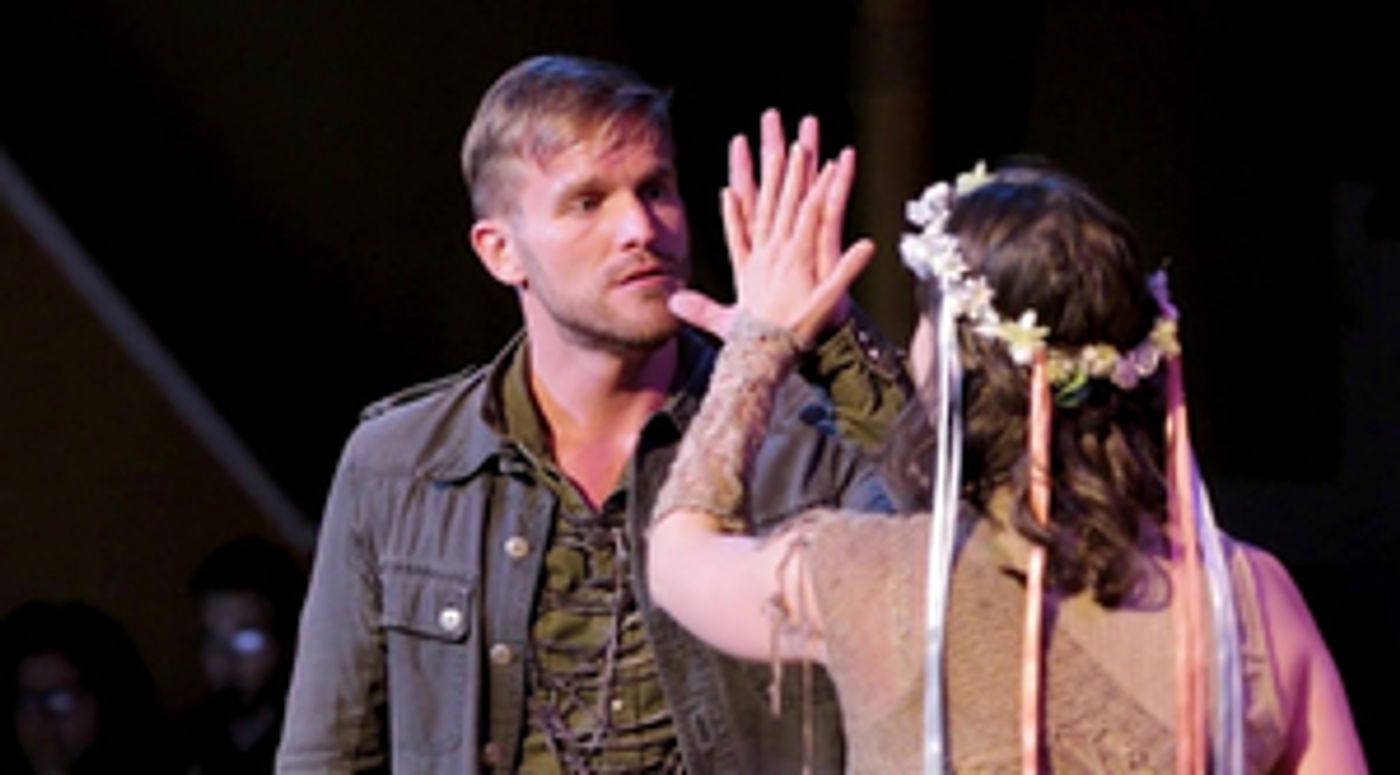Review: UNSHAKEABLE at Home Computer Screens
Opera uses Shakespearian Language to tell of Memory Lost and Regained.

On Friday evening August 28, Santa Fe Opera screened a filmed performance of Joseph Illick and Andrea Fellows Fineberg's one-act opera UnShakeable, composed for the "Shakespeare 400" celebration in 2016. Meridian had lost her memory due to a pandemic of "erasure," but Wyatt still retained some memories of the past and his love for Meridian. In this film, American soprano Jacquelyn Stucker was Meridian and American baritone Jarrett Ott was Wyatt.
Earlier this week, the Grand Teton Festival presented Stucker, a member of the Royal Opera's Jette Parker Young Artist Program at Covent Garden, in a recital accompanied by Festival Music Director Donald Runnicles. Watching the piece that had been filmed four years earlier, one could see that Stucker had grown in stagecraft, but her huge raw talent was already apparent in UnShakeable. She strode the stage with authority and projected her character's emotion with heart-felt sincerity.
Up to the start of the pandemic in March, baritone Jarrett Ott had been busy in Europe singing roles such as the Count in both Le nozze di Figaro and Il barbiere di Siviglia, as well as Valentin in Faust, Marcello in La Bohème, and Dandini in La Cenerentola. With strong dark tones and a good bit of charisma, he is well on his way to a major international career.
Using language from some of Shakespeare's best known plays, Fineberg and Illick created a work that involves the power of a story to reconnect Wyatt to Meridian, the lost love he has been searching for. Except for an emotion-pulling aria sung by Meridian, Illick's music was mainly arioso sung above a beautifully orchestrated accompaniment.
At the beginning of the show, the audience is taught to sing a delightful melody to these words of Polonius from Hamlet: Act 2, Scene 2,
"Doubt thou the stars are fire,
Doubt that the sun doth move,
Doubt truth to be a liar,
But never doubt I love."
At the end of the opera, these lines form a charming choral finale when "The Wishing Star Chorus," which is actually the audience, sings them to Maestro Illick's beautiful tune.
Photo of Jarett Ott by Kate Russell.
Reader Reviews
Videos

